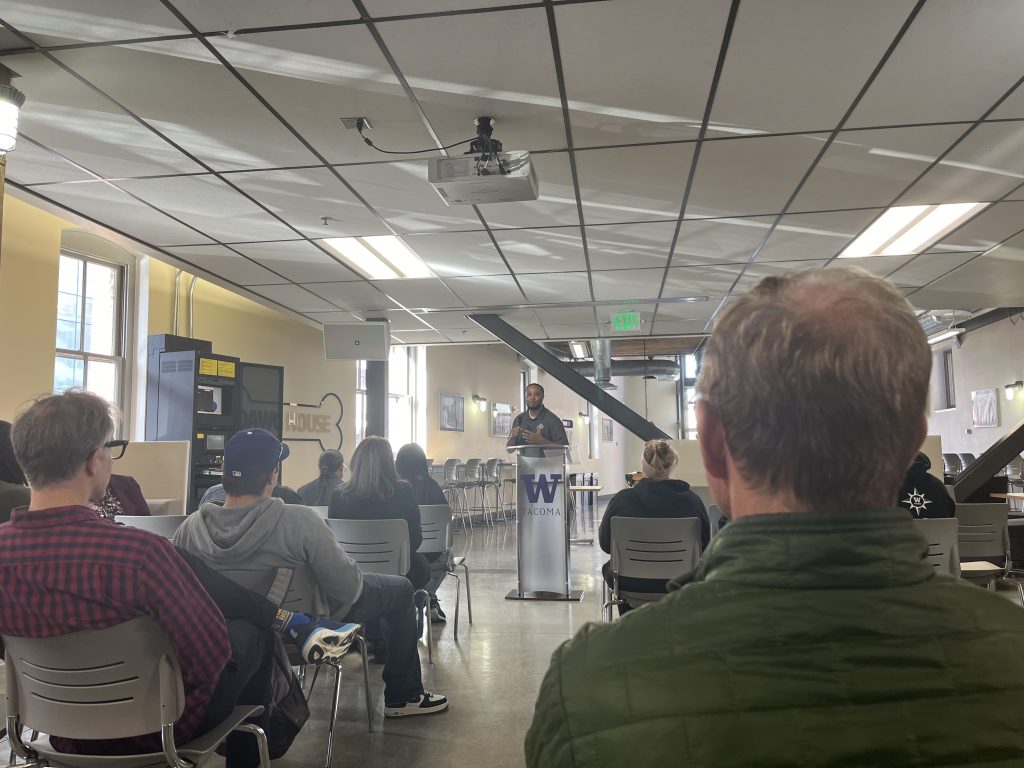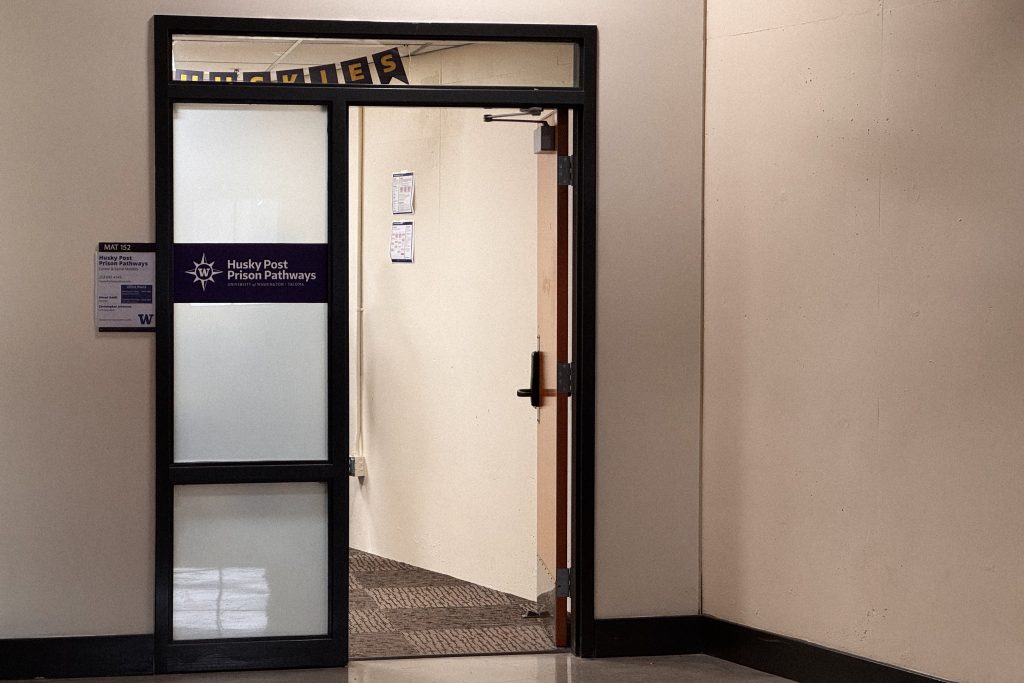UWT welcomes new students under Husky Post Prisons Pathways
UW Tacoma recently hosted the official launch event for the school’s newest program, Husky Post Prison Pathways.
By Michaela Ely
Husky Post Prison Pathways (HP3) is a program supporting formerly incarcerated students that launched during the 2023-2024 academic year with the official launch event celebrated on Oct. 28.
On that day, the celebration was held in the DAWG house on the UWT campus and allowed students to learn more about the program’s goals and who qualifies for the program.
HP3 is dedicated to supporting students throughout their transition from prison to college and their goal is to provide academic opportunities in higher education and encourage students to work towards career advancements through peer navigation and guidance, according to HP3’s official website.
HP3 accomplishes its goals through the three main aspects of recruitment, retention and social mobility. The recruitment aspect involves visiting prisons in order to raise awareness about the program and finding ways to connect with the people inside to provide the information they need to move forward. Retention is accomplished through building a strong community on campus and providing holistic resources for formerly incarcerated students. Social mobility is the final aspect, focusing on getting students prepared to transition into becoming professionals and finding employment.
“I don’t like using the word second chance, because for a lot of people, it’s truly their first opportunity. So fair chance, employment networks, career fairs, making sure that you have like, your resume developed, get introduced to things that you can do while you’re still in school to kind of boost your resume,” Director of HP3 Omari Amili told The Ledger.

When Amili was in college for his degrees, he believed that the degree he was pursuing was what was going to get him a job in the career field he wanted. “But little did I know, nah, you got to have demonstratable skills and be marketable and have experience and things of that nature.”
HP3 is housed within the Career and Social Mobility (CASM) department at UWT, as is the Office of First Gen and the Office of Career Development and Education.
In an interview with The Ledger, Amili spoke about the natural working relationship between all of the programs that CASM houses and resources have available on or off campus for formerly incarcerated students. HP3 has connected with Oxford House, a group of self-supported recovery homes and CJK Community Homes to support students’ housing needs.
The Ledger also spoke with two of HP3’s peer navigators, Aaron Byrne and Chris Bevan about how and why they became involved with the program.
“I really felt like education was a key bridge between successful like, reintegration into society without the risks of recidivism,” Bevan said.
Bevan reflected on the time when he was incarcerated, recalling his peers’ taking classes. It gave him hope for what pursuing an education would be like when he got released, and when he heard about the program, he knew he wanted to get involved.
“I am a Psychology major here at UWT, and I randomly took a class with Chris Beasley, Self and Society, and in that class, I got the privilege of reading his book, and our stories were very similar, and we, like, were in the same neighborhoods.” Byrne said.
Byrne already knew Amilli and stumbled across the program online. When he applied, the openings were full, but after meeting with Amilli at a welcome event, Byrne ended up getting involved.
Both students mentioned Dr. Christopher Beasley, an associate professor of psychology at UWT and one of HP3’s faculty advisors, as a source of inspiration for joining the program.?
“I think that HP3 will impact UWT in a couple of ways. I think one is by creating a more welcoming environment for students that are all formerly incarcerated, students that are already here so that they could feel safe and comfortable,” Dr. Beasley told The Ledger.
Dr. Beasley compares the program’s mission to support students who experienced imprisonment towards the acceptance found in queer culture when someone comes out to be their fullest and most authentic self, without fear of rejection because of who they are.
Dr. Beasley also believes HP3 will help support a cultural change for formerly incarcerated individuals to come out, feel supported and bring awareness to their experiences.
For students who want to connect with HP3, their office is located in the Mattress Factory building in room 152 with office hours held Tuesday to Thursday from 10 a.m. to 4 p.m.



